What it’s like living as a locums in the Caribbean
September 20, 2021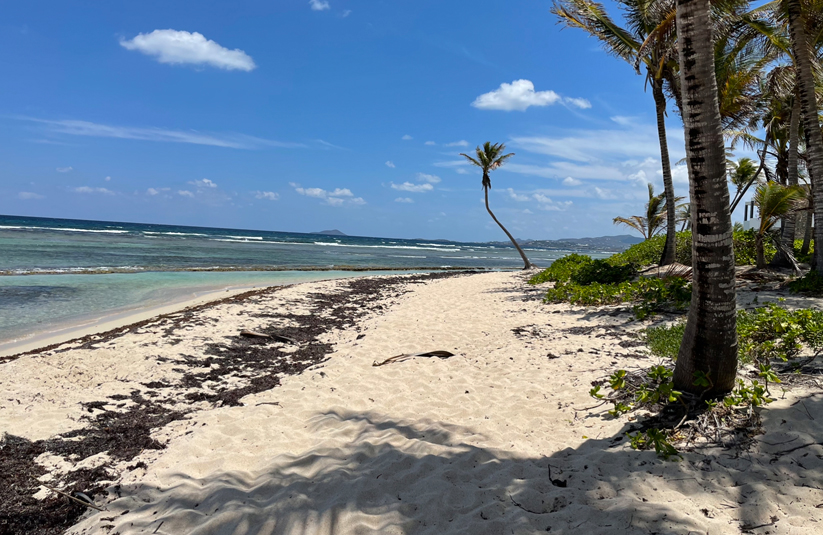
If the idea of a locum tenens assignment in the Caribbean sounds like a vacation, you’d be justified in your reasoning. With temperatures typically between 75 and 85 degrees Fahrenheit every day of the year, life on the islands can be idyllic in many ways. Of course, for a locum physician, the reality is a little different than the perception. You may be surrounded by crystal clear blue waters, but there are challenges to practicing and living there as well.
We spoke to two physicians who have worked multiple locum tenens assignments in St. Croix, the largest of the U.S. Virgin Islands, to better understand the many nuances of practicing medicine in the Caribbean.
Adjusting to island time
“The first time I went, it was very, very difficult because I’m used to things moving fast,” says Dr. Penny Williams, who specializes in pulmonology and critical care.
“Trying to round up the equipment to do any sort of procedure would take me an hour at least,” she says. “Nothing moves quickly. It’s something I had to really step back and say: I can’t practice the way I’m accustomed to, and all I can do is all I can do. I’ll do my best with whatever I have to take care of the patient.”
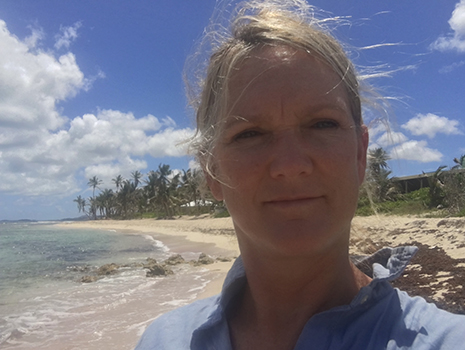
Dr. Penny Williams
Now that Dr. Williams has been to St. Croix almost a dozen times, she has learned that flexibility is key. She learned through trial and error, like when her housing arrangement went from great to not-so-great.
“When I first started going, I was in a two-bedroom apartment, nice size, very nicely appointed,” she recalls. “It had towels and plenty of pots and pans. I had a washer and dryer. But after a couple times there, they sent me to condos. They’re adequate, but they’re poorly stocked. I didn’t have pots one time. I didn’t have a bowl. I’ve had to go buy things like that a couple times when I’ve been there.”
A slower pace may lead to some frustration, but it can also support a quality of life that is otherwise hard to come by. Dr. Alan Hodgdon, an emergency medicine physician, says he has observed the locals spending more time with family and enjoying the simple pleasures of an ordinary day.
“It’s a slower pace that allows them to chat it up at restaurants and hang out with their families,” he says. “That part of the culture is nice.”
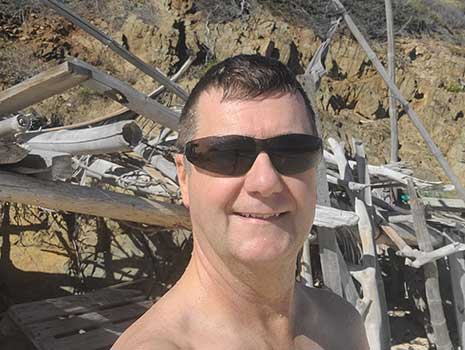
Dr. Alan Hodgdon
Managing when medical resources are limited
Many factors on the island contribute to the scarcity of medical resources, one being that St. Croix is so remote.
“It’s a beautiful place, but it’s hard to get medical care,” says Dr. Hodgdon. “It’s more difficult to practice because there’s not as many resources. There’s not as much equipment in the emergency room. It’s hard to get a urologist—they’re only in on Tuesday and Friday, for example, or orthopedics is out of town. So, you’re left to manage.”
Working locum tenens in St. Croix has been similar for Dr. Williams: “The hospital has very few supplies, and they have very few specialties. Nobody is in a hurry,” she reiterates. She manages by having an open mind and being as flexible as possible. Dr. Williams enjoys the experience because of the unique challenges, not in spite of them.
“I’m just realistic about going there,” says Dr. Williams. “I know what I’m getting when I go, and I enjoy going. It’s the type of medicine that you don’t get to practice in the States—you have to be adaptive; you have to make use of the supplies you can find. If you don’t have the equipment to do something, you have to realize you’ve done everything you could.”
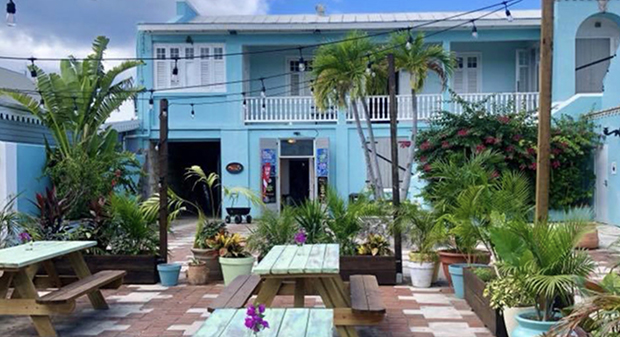
The cost of living in St. Croix
Vegetables make up the majority of Dr. Williams’ diet, and she found herself adjusting once again, this time to the higher cost of simple items she is accustomed to easily grabbing in grocery stores at home.
“They have a very different diet; they eat a lot of meat, and food is very expensive there,” she says. “A pint of strawberries might be $7. A little container of peanut butter might be $10. A loaf of bread is probably $5 or $6. You kind of have to adapt what you’re going to eat when you go there.”
Luckily, constant warmth brings an abundance of ripe tropical foods. Dr. Hodgdon says he enjoys the variety of local foods available for sampling, such as the food trucks at the hospital serving fresh fish and fruit, as well as local items he can cook at home.
“You can get a coconut for a buck, but you won’t get Cheerios for a buck,” jokes Dr. Hodgdon. “You can go to farmers' markets; the fruits are excellent, papayas and all that stuff. If you take advantage of the local cuisine, it’s one of the advantages of traveling.”
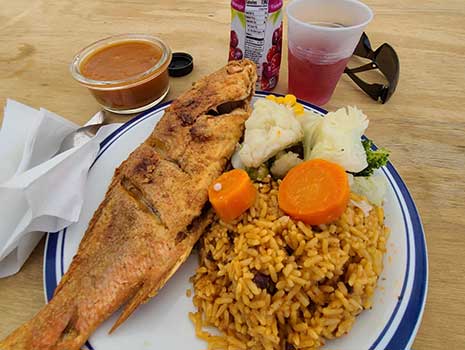
Nothing but love for St. Croix
A positive outlook has helped both doctors recognize the island's beauty and magic.
Dr. Hodgdon prefers to focus on the positives, including the recreation. “The water is stunning, there’s not much pollution, and the weather is the same year-round,” he says. “Half the island is like a tropical rainforest and the other half is like a desert, so you get a wide variety of stuff to do. You can go bird watching, hiking, biking, swimming, or fishing.”
“It’s beautiful to live there. The beaches are wonderful. The people are wonderful. They are very friendly, willing to take you right in. They’re gregarious in one-on-one situations. Everyone is very polite. I enjoy taking care of them,” says Dr. Williams. “If you can be flexible, you can enjoy it.”
RELATED: Life transition brings opportunity in the Virgin Islands
Are you ready to start your Caribbean adventure? Give us a call at 1.800.760.3174 or view today’s job opportunities.

